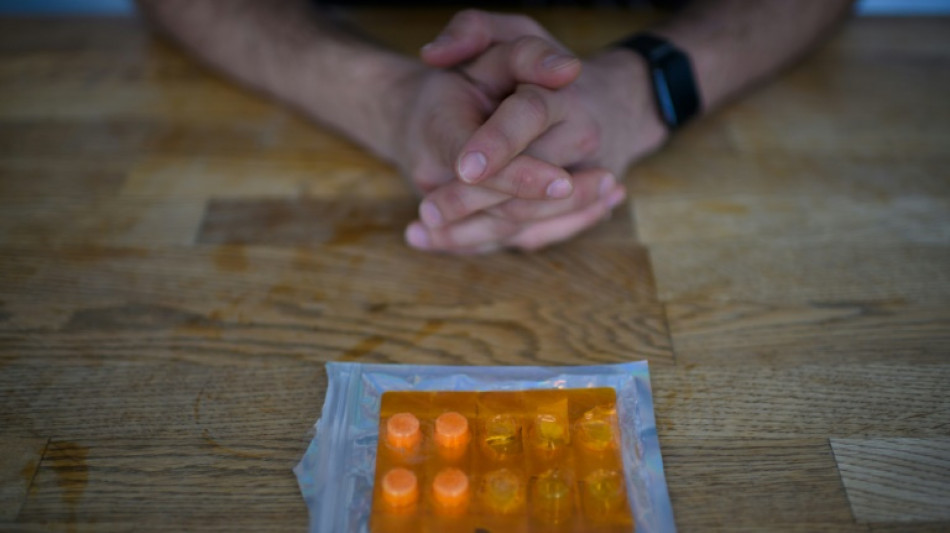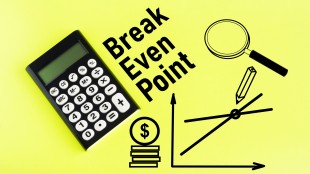
-
 'Personality' the key for Celtic boss Nancy when it comes to new signings
'Personality' the key for Celtic boss Nancy when it comes to new signings
-
Arteta eager to avoid repeat of Rice red card against Brighton

-
 Nigeria signals more strikes likely in 'joint' US operations
Nigeria signals more strikes likely in 'joint' US operations
-
Malaysia's former PM Najib convicted in 1MDB graft trial

-
 Elusive wild cat feared extinct rediscovered in Thailand
Elusive wild cat feared extinct rediscovered in Thailand
-
Japan govt approves record budget, including for defence

-
 Seoul to ease access to North Korean newspaper
Seoul to ease access to North Korean newspaper
-
History-maker Tongue wants more of the same from England attack

-
 Australia lead England by 46 after 20 wickets fall on crazy day at MCG
Australia lead England by 46 after 20 wickets fall on crazy day at MCG
-
Asia markets edge up as precious metals surge

-
 Twenty wickets fall on day one as Australia gain edge in 4th Ashes Test
Twenty wickets fall on day one as Australia gain edge in 4th Ashes Test
-
'No winner': Kosovo snap poll unlikely to end damaging deadlock

-
 Culture being strangled by Kosovo's political crisis
Culture being strangled by Kosovo's political crisis
-
Main contenders in Kosovo's snap election

-
 Australia all out for 152 as England take charge of 4th Ashes Test
Australia all out for 152 as England take charge of 4th Ashes Test
-
Boys recount 'torment' at hands of armed rebels in DR Congo

-
 Inside Chernobyl, Ukraine scrambles to repair radiation shield
Inside Chernobyl, Ukraine scrambles to repair radiation shield
-
Bondi victims honoured as Sydney-Hobart race sets sail

-
 North Korea's Kim orders factories to make more missiles in 2026
North Korea's Kim orders factories to make more missiles in 2026
-
Palladino's Atalanta on the up as Serie A leaders Inter visit

-
 Hooked on the claw: how crane games conquered Japan's arcades
Hooked on the claw: how crane games conquered Japan's arcades
-
Shanghai's elderly waltz back to the past at lunchtime dance halls

-
 Japan govt approves record 122 trillion yen budget
Japan govt approves record 122 trillion yen budget
-
US launches Christmas Day strikes on IS targets in Nigeria

-
 Australia reeling on 72-4 at lunch as England strike in 4th Ashes Test
Australia reeling on 72-4 at lunch as England strike in 4th Ashes Test
-
Too hot to handle? Searing heat looming over 2026 World Cup

-
 Packers clinch NFL playoff spot as Lions lose to Vikings
Packers clinch NFL playoff spot as Lions lose to Vikings
-
Guinea's presidential candidates hold final rallies before Sunday's vote

-
 Aptevo Therapeutics Announces 1-for-18 Reverse Stock Split
Aptevo Therapeutics Announces 1-for-18 Reverse Stock Split
-
Loar Holdings Inc. Announced The Completion of its Acquisition of LMB Fans & Motors

-
 IRS Can Freeze Installment Agreements After Missed Filings - Clear Start Tax Explains Why Compliance Comes First
IRS Can Freeze Installment Agreements After Missed Filings - Clear Start Tax Explains Why Compliance Comes First
-
How the Terms of SMX's $111 Million Capital Facility Shape the Valuation Discussion

-
 A Christmas Message to the DEA's Diversion Anti Marijuana Cabal
A Christmas Message to the DEA's Diversion Anti Marijuana Cabal
-
QAT Community Sets QuantumTrade 5.0 for Public Beta Testing in March 2026

-
 BondwithPet Expands B2B Offering with Custom Pet Memorial Product
BondwithPet Expands B2B Offering with Custom Pet Memorial Product
-
Best Crypto IRA Companies (Rankings Released)

-
 Eon Prime Intelligent Alliance Office Unveils New Brand Identity and Completes Website Upgrade
Eon Prime Intelligent Alliance Office Unveils New Brand Identity and Completes Website Upgrade
-
Villa face Chelsea test as Premier League title race heats up

-
 Spurs extend domination of NBA-best Thunder
Spurs extend domination of NBA-best Thunder
-
Malaysia's Najib to face verdict in mega 1MDB graft trial

-
 King Charles calls for 'reconciliation' in Christmas speech
King Charles calls for 'reconciliation' in Christmas speech
-
Brazil's jailed ex-president Bolsonaro undergoes 'successful' surgery

-
 UK tech campaigner sues Trump administration over US sanctions
UK tech campaigner sues Trump administration over US sanctions
-
New Anglican leader says immigration debate dividing UK

-
 Russia says made 'proposal' to France over jailed researcher
Russia says made 'proposal' to France over jailed researcher
-
Bangladesh PM hopeful Rahman returns from exile ahead of polls

-
 Police suspect suicide bomber behind Nigeria's deadly mosque blast
Police suspect suicide bomber behind Nigeria's deadly mosque blast
-
AFCON organisers allowing fans in for free to fill empty stands: source

-
 Mali coach Saintfiet hits out at European clubs, FIFA over AFCON changes
Mali coach Saintfiet hits out at European clubs, FIFA over AFCON changes
-
Last Christians gather in ruins of Turkey's quake-hit Antakya


Ketamine pill treats depression without psychedelic effects: study
A new pill that slowly releases ketamine could treat people with severe depression without giving them the psychedelic side effects of the often-misused drug, early trial results suggested on Monday.
First developed in the 1960s as an anaesthetic, ketamine's hallucinogenic and dissociative effects led to it becoming a party drug dubbed "Special K".
However, mounting research has demonstrated that ketamine is effective for the roughly quarter of people suffering from depression who see little benefit from common anti-depressant drugs.
In many countries, ketamine has been prescribed for depression for years.
US billionaire Elon Musk told CNN in March that he regularly uses a small amount of prescribed ketamine because it is "helpful for getting one out of the negative frame of mind".
The drug has long been administered intravenously in clinics, but more recently a nasal spray using a derivative called esketamine has increased in popularity.
Both can cause patients to have side effects such as dissociation, high blood pressure and an elevated heart rate.
There are also fears that medical use of the drug could slide into abuse.
The pill described in the journal Nature Medicine on Monday takes more than 10 hours to break down in the liver, lead study author Paul Glue told AFP.
"The really interesting feedback from patients is the lack of side effects -- no euphoria, no dissociation," said the researcher at New Zealand's University of Otago.
"I don't think these tablets would appeal to people who are abusing ketamine."
- Electro-shock alternative -
The phase 2 trial involved more than 270 people with depression who had previously tried an average of four different anti-depressant drugs.
More than half taking the ketamine pill went into remission for their depression, while 70 percent of the placebo group relapsed after 13 weeks, the study said.
Julaine Allan, an expert on mental health and addiction at Australia's Charles Sturt University who was not involved in the study, praised the trial while emphasising that more research is needed.
Ketamine does not work for everyone, and the "positive effects may wear off over time," she told AFP.
Michel Hoffmann, a psychiatrist at Geneva University Hospitals, said there is "real enthusiasm" in the medical community for ketamine's potential for treating depression.
"For patients who don't respond to conventional drugs, ketamine offers a way to avoid electro-shock therapy," he told AFP.
This last-resort treatment, which involves sending electric currents through the brain, has been proven to be effective.
But it can cause memory loss -- and some patients fear the procedure after seeing depictions of it in films such as "One Flew Over the Cuckoo's Nest".
- Fears of 'opioid style crisis' -
Some psychiatrists remain hesitant to prescribe ketamine for depression, fearing their patients could end up misusing the drug.
Last year, "Friends" actor Matthew Perry became the latest high-profile death from a ketamine overdose.
US police are investigating how Perry obtained the doses that caused his death -- he had reportedly not had a supervised infusion session for several days.
One potential benefit of quick-acting ketamine seen in previous research is that it could help patients considering suicide.
But there is "the plausible concern that the widespread use of ketamine might trigger a new opioid style crisis," Oxford researcher Riccardo De Giorgi said in a 2022 BMJ editorial.
By ridding ketamine of the side effects sought by some partygoers, the slow-release pill could alleviate some of these concerns.
There were still some side effects from the pill, the most common being headaches, dizziness and anxiety.
More research including phase 3 trials is needed before the drug can be reviewed by national medicine agencies, meaning it will be at least two or three years before patients could potentially access the pills, Glue said.
O.Norris--AMWN


